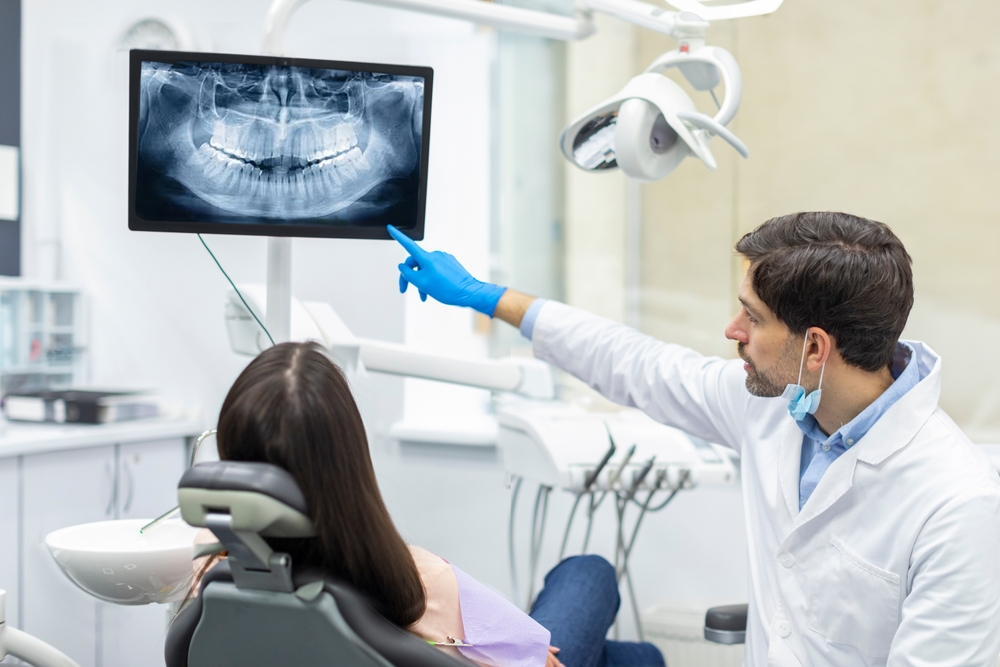Dental X-rays are a vital part of maintaining your oral health, but many people wonder, “How often should you get dental X-rays?” The answer depends on various factors, including your age, dental history, and overall health. In this guide, we’ll explore everything you need to know about dental X-rays, from their purpose to their frequency and safety.
What Are Dental X-rays?
Dental X-rays are images of your teeth, gums, and jaw that help dentists diagnose and monitor various dental conditions. They’re an essential tool in preventive dentistry, allowing your dentist to see issues that are not visible during a regular dental exam. These X-rays can detect problems early, often before you experience any symptoms, which is crucial for effective treatment.
How Do Dental X-rays Work?
Dental X-rays work by passing a small amount of radiation through your mouth, which is then captured on film or a digital sensor. Dense structures, such as teeth and bones, absorb more radiation and appear lighter on the X-ray, while cavities, infections, and other issues appear darker. This contrast allows your dentist to identify areas of concern and determine the appropriate treatment.
What Can Dental X-rays Detect?
Dental X-rays are incredibly useful for detecting a variety of oral health issues. Here’s what they can reveal:
Tooth Decay & Cavities
Dental X-rays can detect cavities that are not visible during a regular dental exam, especially those between teeth or under existing fillings. Early detection through X-rays helps prevent more severe decay and the need for more extensive treatment.
Jaw Alignment & Bite Problems
X-rays can reveal issues with jaw alignment and bite, such as overbites, underbites, and crossbites. Identifying these problems early can help in planning orthodontic treatment or other corrective measures.
Gum Disease
Gum disease, or periodontal disease, can cause bone loss around the teeth. Dental X-rays can show the extent of this bone loss, helping your dentist to assess the severity of the condition and recommend appropriate treatment.
Oral Infections
X-rays can detect infections in the roots of teeth or in the jawbone, which might not be apparent during a visual examination. These infections can lead to abscesses or other serious conditions if left untreated.

How Are Dental X-rays Done?
Getting dental X-rays is a simple and quick process. The procedure typically involves placing a small film or digital sensor inside your mouth, which you’ll bite down on to keep in place. The X-ray machine is then positioned close to your face, and the image is taken in just a few seconds. You may be asked to stay still or hold your breath momentarily to avoid any blurring of the image. The entire process is painless and usually completed in just a few minutes.
What Are The Different Types of Dental X-rays?
There are several types of dental X-rays, each serving a specific purpose. Here’s a breakdown of the most common ones:
Bitewing
Bitewing X-rays are used to detect cavities between teeth. They provide a detailed view of both the upper and lower teeth in one area of the mouth, making it easier to spot decay that might otherwise be hidden.
Occlusal
Occlusal X-rays capture the entire arch of teeth in either the upper or lower jaw. They are particularly useful for identifying tooth development issues in children and detecting cysts or tumors.
Panoramic
A panoramic X-ray provides a broad view of the entire mouth, including all teeth, the jaw, and surrounding structures. This type of X-ray is often used to plan treatments such as braces, extractions, or implants.
Periapical
Periapical X-rays focus on just one or two teeth and show the entire tooth, from crown to root. They’re useful for detecting problems at the root level, such as abscesses or impacted teeth.

How Often Should You Get Dental X-rays?
How often should teeth be X-rayed? The frequency of dental X-rays depends on your individual needs. For adults with no major dental issues, getting X-rays every 1-2 years is typically sufficient. However, if you’re prone to cavities or have a history of dental problems, your dentist may recommend X-rays more frequently, possibly every 6-12 months. For children, who are more susceptible to tooth decay, X-rays might be needed more often to monitor their developing teeth. It’s always best to follow your dentist’s recommendations, as they can assess your specific situation and advise you on how often teeth should be X-rayed.
How Long Should You Wait Between Dental X-rays?
The appropriate interval between dental X-rays varies based on your oral health history and risk factors. For most people, waiting 1-2 years between X-rays is adequate. However, those at higher risk for dental issues may need them more frequently. Your dentist will consider factors like your age, dental history, and overall health when determining the best interval for your dental X-rays.
Are Dental X-rays Safe?
Is it safe to get dental X-rays? One of the most common concerns patients have is whether it is safe to get dental X-rays. The answer is yes. Dental X-rays involve a very low level of radiation—so low that the benefits of early detection far outweigh the risks. Modern dental practices use advanced technology to minimize exposure even further, often utilizing digital X-rays, which require significantly less radiation than traditional film X-rays. Protective measures, such as lead aprons and thyroid collars, are also used to shield patients from unnecessary exposure.
Schedule Your Dental X-Ray in Houston with Brownstone Dental Today
Looking for a dental x-ray in Houston, TX? At Brownstone Dental in Houston, TX, we offer state-of-the-art dental care, including comprehensive X-ray services. Our team, led by celebrity cosmetic dentist Dr. Saif Shere, DMD, specializes in both general and cosmetic dentistry, ensuring that your smile receives the best possible care. Whether you’re wondering about the cost of dental X-rays or how often you should get them, we’re here to help. Located at 9824 Fondren Rd, Houston, TX 77096, Brownstone Dental is your trusted partner in achieving optimal dental health.
Contact us today to schedule your next dental X-ray and experience top-tier care in Houston. For more information on our services, explore our Preventative Dental Services, or check out all our dental services.